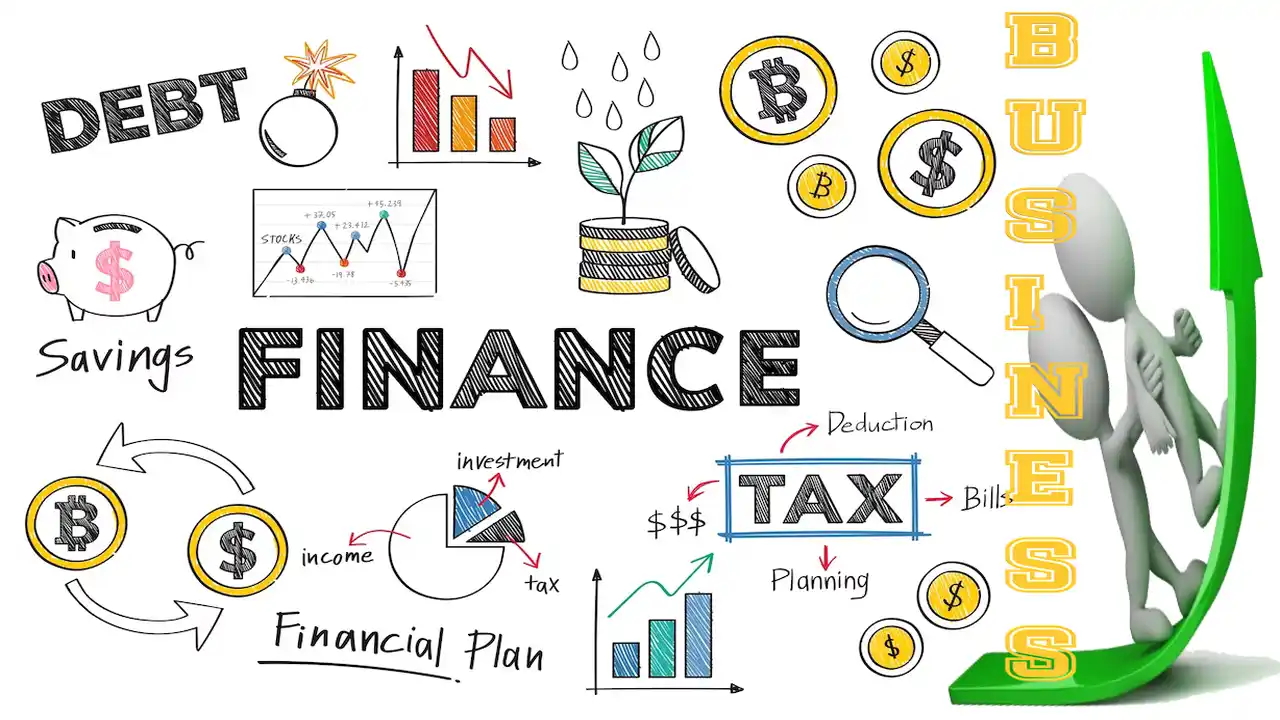The planning process consists of simple, straightforward steps. To achieve your goals with minimal investment risk, you will adhere to tried-and-true financial tactics and methods. In this article, we will discuss about principles of financial planning in brief with examples for your better understanding.
At its most basic level, financial planning is compiling a list of one’s personal and financial objectives, ranking them in order of importance, outlining the associated costs, and outlining a plan to attain each objective. After that, you should plan carefully to accomplish each objective while keeping risks to a minimum.
Principles of Financial Planning
A lot of individuals will have to discover this horrible reality the hard way. Do your best to stay away from pyramid schemes and gifting programs that try to trick you into giving money. You should exercise caution when considering an investment that guarantees exceptionally high returns in a relatively short time. Because of how challenging it is to make money, you should put all of your energy on finding a reliable, publicly traded investment business. You shouldn’t give money to people you’re close to, no matter how tough it is.
If you lend money to a friend without checking their credit, you will almost certainly end up losing both of them. The importance of having a savings account reserved for unforeseen costs cannot be overstated. In case of an unexpected expense, having a cash reserve can prevent you from taking out a loan and provide you the peace of mind that comes from knowing your finances are stable. To learn more, think about reading these principles of financial planning.
Familiarize with Regulations
Once you know your limitations, you may start to enjoy life to the fullest. You risk losing patience and wasting time if you aren’t aware of the rules.
Maintain a Long-term Perspective
The prudence of your monetary choices is proportional to the time you spend contemplating them. Define your long-term goals. For the time being, you need not fret over the evolution of your 401(k) plan. Your focus should be on saving for the future.
Probably Broke are the Joneses
You should never try to beat your friends financially. Some people will always have more money, better cars, and better style than you. The vast majority of those who partake in extravagant spending are either deeply in debt or about to declare bankruptcy.
Discover Minimalist Possibilities
In what time frame might you estimate the monetary effects of buying an oceanfront mansion for 10 million dollars? I need an instant response from you regarding the impact on your budget of a $3 Starbucks coffee. How fast can you estimate how much money you would need to renovate a single room in your house? Have you thought about getting a new automobile?
The first two questions are usually easy and quick for most people to respond. Getting the third and fourth questions right is a challenge for most people. It doesn’t matter to the majority of people if you’re buying a $3 Starbucks cup or a $10 million mansion. Why? Because the house stands for something we’ll never do, and the coffee cup for something we’ll never even think about.
The bulk of us will be faced with decision-making tasks in the third and fourth questions. To a greater or lesser extent, our lives are defined by these choices. Things are situated in the center, or the “messy middle,” of the spectrum. Difficult decisions can make us feel confined and that our lives are getting worse, even when that’s not always the case.
A Budget is Situational
Get in touch with a third-party expert who can help you map out a financial plan that supports your goals. Your ideals and principles, along with your aspirations for a certain way of life and the attainment of financial independence, should serve as the bedrock of your approach.
Keep Learning
To keep up with the ever-evolving world, one must never rest on their laurels. Your credibility as an authority in your field will be enhanced if you commit to keeping abreast of, and perhaps even ahead of, any developments in your field. The ability to perform at a high level is irreplaceable, regardless of your employment situation.
Wealth Grows with Frugal Habits
To become financially independent, you need to learn to live within your means and put the surplus into a diversified investment portfolio. How much you save is far more important than how much you earn when calculating your worth.
Stay in Order
Suppose you were abandoned in the middle of nowhere and couldn’t find a way back. When you hear this, what thoughts immediately come to mind? It goes without saying that picking a starting point is the most important part of planning any kind of trip. Being well-organized is like having a clear picture of your financial situation while making judgments.
Prioritize Financial Self-Care
Paying yourself first encourages you to take quick action to ensure your financial stability in the future. To accomplish this goal as effectively as possible, an automated savings plan has to be put in place. In this way, you can set aside a portion of your income every month and start building wealth right away. Time and compound interest are your greatest friends when making a purchase, so be sure to use them to your advantage.
Take Charge of Your Finances
You need to stop letting your finances dictate your actions and start taking charge of them immediately, regardless of how busy you are. Because of how quickly your life and relationships can change, you should never, ever give another else control of your money. You should never assume that you will be financially secure just because your spouse is rich or because you are about to inherit a large sum of money.
Use Debt as Little as Possible
Your level of danger is directly proportional to the amount of debt you have. It might help you do more today, but it will hinder your ability to save and spend tomorrow. Having debt makes things much worse for someone who is already struggling financially.
Control Spending
Get a handle on your income and expenses. Write it down. Come as close or as far away as you can, study it, and keep an eye on it; it doesn’t matter if you call it a “budget” or not. Practice restraint when it comes to your expenditure. Your odds of success will improve if you can manage to spend less than you make over a long period of time.
Find Signals in Chaos
It is possible to separate a signal’s data from its noise. Contradictory information is readily available almost everywhere. The term for this is background noise. When you arrange data in a way that serves your interests, you’ll see signals. When faced with an overwhelming amount of data but insufficient context, we often experience feelings of confusion and disorientation.
Invest in Quality, Patience Pays
In our haste to avoid pain, we may skimp on quality when shopping. More money will have to be spent on repairs or replacements because of this in the end.
Preserve Funds for Emergencies
You can get through the tough periods in life if you put aside this amount of money. Spending less than you earn is the first step toward financial savings. Not only that, but avoiding debt will be easier with these savings. Understanding the principles of financial planning is essential for building a secure and prosperous financial future.
FAQ
What is the Significance of Financial Principles?
When applied to business, financial concepts can teach employees in a variety of roles how to assess the financial health of their organization, how to put a price on value, and how to effectively communicate with shareholders.
Income Tax Planning is What?
Reducing, deferring, eliminating, or altering federal and state income and capital gains taxes (or converting them to a more equitable rate structure) is typically the goal. To achieve this goal, you can alter, postpone, reduce, or eliminate your income. We could look into the following strategies together: making the most of retirement accounts (including employer plans and Traditional, Roth, and SEP IRAs); shifting assets to lower-tax bracket individuals (529 plans, custodial accounts, and Coverdell Education Savings accounts); and/or waiting at least one year and a day before selling capital assets to take advantage of the long-term capital gain holding period.
In Order to Prepare for Retirement, what Steps Must One Take?
Attempting to save enough money before leaving and making sure you don’t spend too much once you retire are both part of retirement planning. You should save up enough money to support yourself in retirement. The process includes determining the most tax-efficient method to liquidate assets from various accounts in order to generate sufficient funds, determining how to generate income to cover the different expenses you can expect to incur in retirement, and estimating the amount of money you will require to satisfy your needs, wants, and desires once you’re no longer working.
Final Words
When the stakes are great, it’s even more important to weigh all of your options carefully. Whether you’re purchasing a car, an investment, or a piece of real estate, it’s wise to give yourself plenty of time to think about your alternatives. Think about talking to professionals in the field, asking questions, gathering advice, comparing notes, and doing some research. Someday in the future, you will definitely learn to value the practice of patiently waiting for your desires to materialize. We hope this guide, in which we discussed principles of financial planning, was informative and beneficial for you. Dive deeper into the fundamentals of financial planning topic by reading this extensive research paper.






